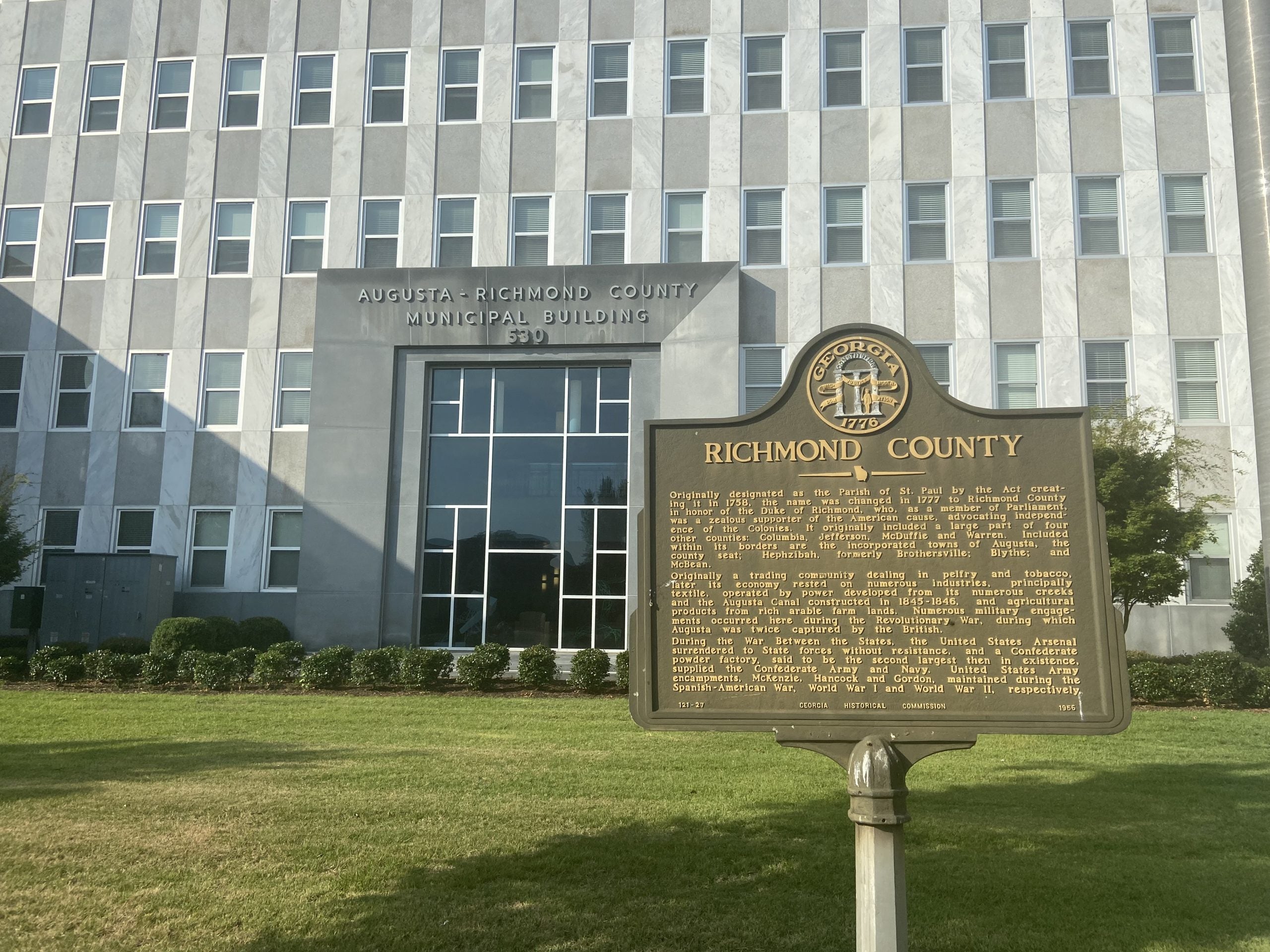Updated 11:16 a.m. July 20 to correct reference to Newton County lawsuit
The Augusta Commission heard from a group of citizens who have banded together on social media to support leaving the Confederate monument on Broad Street in its place at a meeting of the full commission on July 19.
After a presentation by Russ Gambill on behalf of the 2,900-member Facebook group “Save the Monuments in Augusta,” and discussion by two Augusta Commissioners, the commission took no action. Currently, the biggest obstacle for any commission decision is not divided public opinion, but state law.
According to attorney David Hudson, state law forbids any county or municipality from removing statues or monuments from public property where they currently stand.
Previously, the commission had heard from a group led by Michael Gallucci in favor of removing the monument, and Mayor Hardie Davis Jr.’s hand-selected task force recommended in September 2021 that the monument be moved from its prominent spot to a local city-owned cemetery.
MORE: Officials in Columbia County to talk taxes at separate meetings
The monument was installed in the median on the 700 block of Broad Street in 1878 by the Ladies Memorial Association.
During his presentation, Gambill likened the 76-foot-tall monument to a grave marker for all of the Confederate soldiers from Augusta who never made it home to their families.
“By the end of the war in 1865, it was estimated that over 200,000 soldiers had died on the battlefield and were buried in shallow unmarked graves by the locals or were simply left where they fell to decompose or be ravaged by animals,” Gambill said.
Gambill acknowledged that the Civil War remains an unpopular war in the public consciousness, but argued wars such as Vietnam, the sacrifice made by the soldiers should be recognized even if they were, in hindsight, on the wrong side of history.
Supporters of removing the monument cite the language inscribed, “No nation rose so white and fair: None fell so pure of crime,” as being racially tinged; however, Gambill said the phrase was lifted from the ancient Greek poet Homer in his depiction of the fall of Troy in “The Iliad.”
After the presentation, District 4 Commissioner Alvin Mason expressed his reaction.
“You mentioned you were clearing up misconceptions; I’m not sure you cleared up any misconceptions in this five minute spiel right here,” Mason said.
District 1 Commissioner Jordan Johnson went even further, stating that his ancestors were slaves, and while they did not fight in the Civil War, they “were probably dead because of what happened at the time here.”
In his response, Johnson said he faces racism, that white women “clutch their pearls” when they get into an elevator with him and that he has received notes and emails of a threatening nature over his support for removing the monument.
MORE: Columbia County upgrading school kitchen equipment
“I have very little sympathy right now for this romanticism of this era,” Johnson said, adding, “We might never reach a resolve; we may never reach a middle ground ‘kumbaya’ here.”
Johnson said he wanted the “truth” of the monument to come out but admitted he didn’t know who the five men depicted on the monument were.
“If you can identify them, then please send me an email with their names and such,” Johnson said.
The men depicted at the base of the monument are Gen. R. R. Cobb, Gen. Robert E. Lee, Gen. Stonewall Jackson and Gen. William H. T. Walker. At the very top of the monument stands Pvt. Berry Benson, a common soldier who later became an early civil rights pioneer.
A Newton County, Ga. group with a similar mission as the Save the Monuments in Augusta group has a case before the Georgia Supreme Court.
Scott Hudson is the senior reporter for The Augusta Press. Reach him at scott@theaugustapress.com











